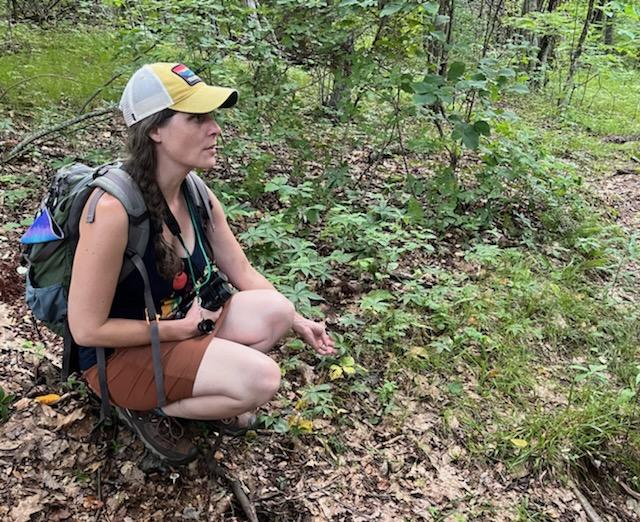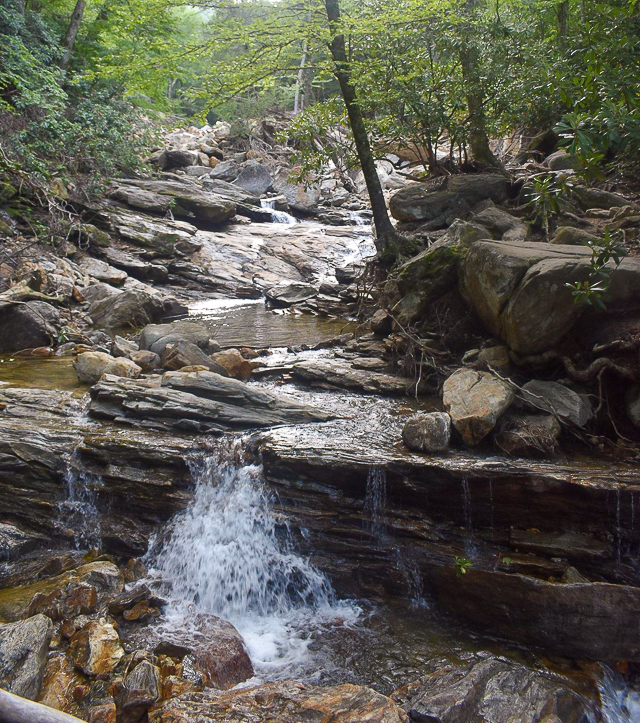
Melissa teaches us about Indian Cucumber-Root (Medeola virginiana).
We broke camp this morning at Briar Bottom Campground and spent part of our day at the Blue Ridge Parkway Visitors Center with three guest experts. Brad Sauls discussed the never-ending battle against invasive species in the park as well as the endangered and threatened ones that need our protection. Illustrator Jeff Preston shared his efforts at bringing engaging images and visual messages to the public: everything from roadway markers to bear safety posters in the park bathrooms.
A highlight for many of us, though, was our writing workshop with Dr. Mildred Barya, writer and professor at UNC-Asheville. Mildred starting by asking each of us to share our relationship to writing. Just like our students, our attitudes and perspectives varied widely — some of us are poets, letter writers, journalers, science communicators; others of us disdain writing and suffer through it only when it’s demanded of us. Mildred invited us to consider and then write about the defense mechanisms and characteristics of a specific plant or animal and then use it as a way of thinking of our own. This seemingly simple prompt led to some metaphorical thinking in our group, and we loved hearing more about each other’s lives.

Skinny Dip Falls (2022) looks very different after heavy rains from Tropical Storm Fred caused extensive changes to the landscape.
We got settled at Mount Pisgah Campground — our home for the next two nights, and then took an evening hike to Skinny Dip Falls. On the way, we foraged cucumber-root and passed hikers who were foraging for chanterelle mushrooms. The site of the falls, however, was a juxtaposition of beauty and destruction. Our group leaders were there just last year, but the falls have changed drastically due to Tropical Storm system Fred, which dumped 14 inches of rain on the area in 12 hours. Massive boulders were re-distributed, trail stairs and fences destroyed, and the entire look of the falls was radically different from the photos that Chris, Greg and Melissa shared from 2021. The falls was a site and sign to consider the impact of changing weather patterns due to the global climate crisis and what can be done about it. How do we convey facts about the climate crisis to our students? How do we act communally and not just individually? How do we engage leaders regardless of their political affiliation?
Just as important as this discussion, though, was the reminder that places — swimming holes, forests, valleys — are important to who we are, our stories and our legacies.
For more pictures of our adventures check out @ncmnsteachered on Instagram: https://www.instagram.com/p/CgDaXZOLrTi/?igshid=YmMyMTA2M2Y=
